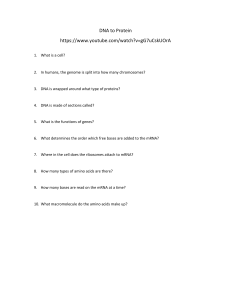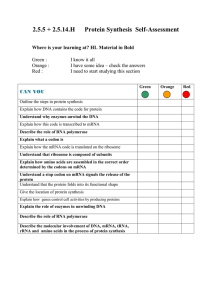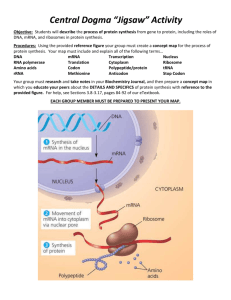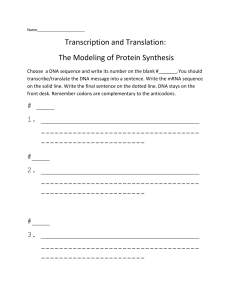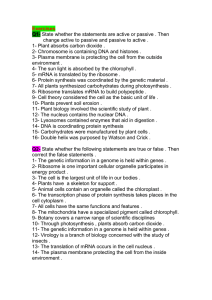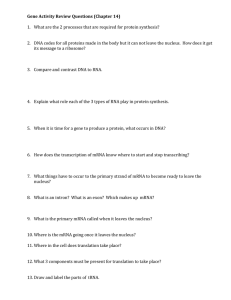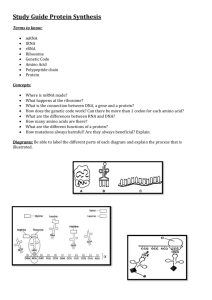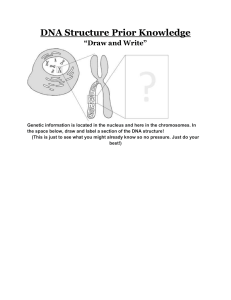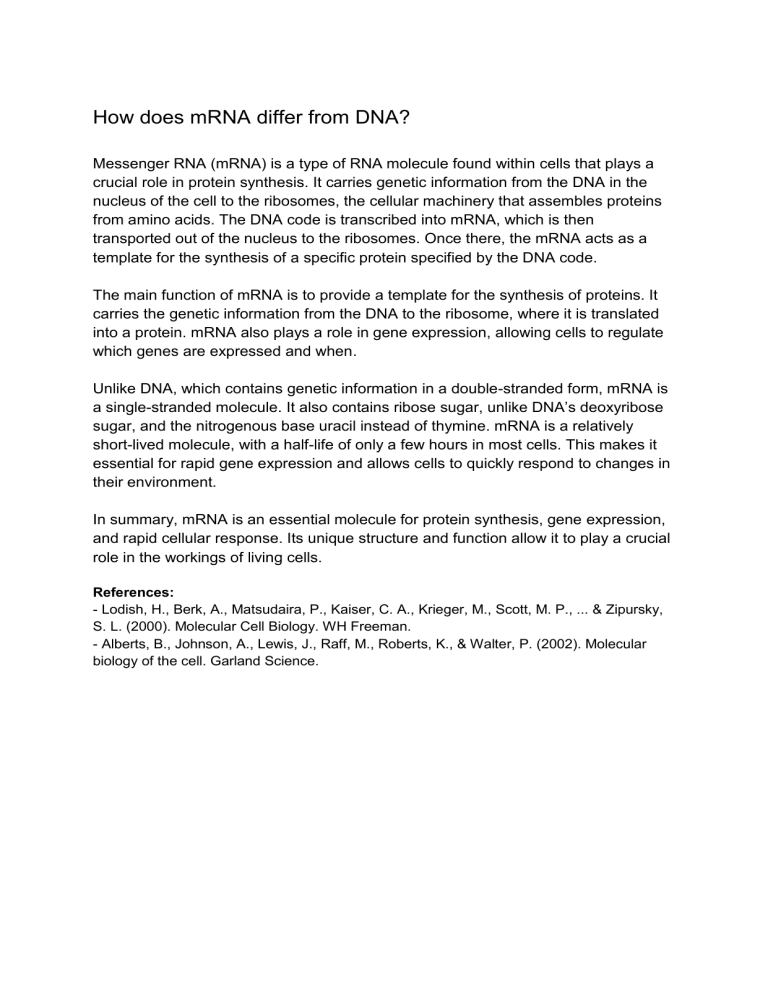
How does mRNA differ from DNA? Messenger RNA (mRNA) is a type of RNA molecule found within cells that plays a crucial role in protein synthesis. It carries genetic information from the DNA in the nucleus of the cell to the ribosomes, the cellular machinery that assembles proteins from amino acids. The DNA code is transcribed into mRNA, which is then transported out of the nucleus to the ribosomes. Once there, the mRNA acts as a template for the synthesis of a specific protein specified by the DNA code. The main function of mRNA is to provide a template for the synthesis of proteins. It carries the genetic information from the DNA to the ribosome, where it is translated into a protein. mRNA also plays a role in gene expression, allowing cells to regulate which genes are expressed and when. Unlike DNA, which contains genetic information in a double-stranded form, mRNA is a single-stranded molecule. It also contains ribose sugar, unlike DNA’s deoxyribose sugar, and the nitrogenous base uracil instead of thymine. mRNA is a relatively short-lived molecule, with a half-life of only a few hours in most cells. This makes it essential for rapid gene expression and allows cells to quickly respond to changes in their environment. In summary, mRNA is an essential molecule for protein synthesis, gene expression, and rapid cellular response. Its unique structure and function allow it to play a crucial role in the workings of living cells. References: - Lodish, H., Berk, A., Matsudaira, P., Kaiser, C. A., Krieger, M., Scott, M. P., ... & Zipursky, S. L. (2000). Molecular Cell Biology. WH Freeman. - Alberts, B., Johnson, A., Lewis, J., Raff, M., Roberts, K., & Walter, P. (2002). Molecular biology of the cell. Garland Science.
